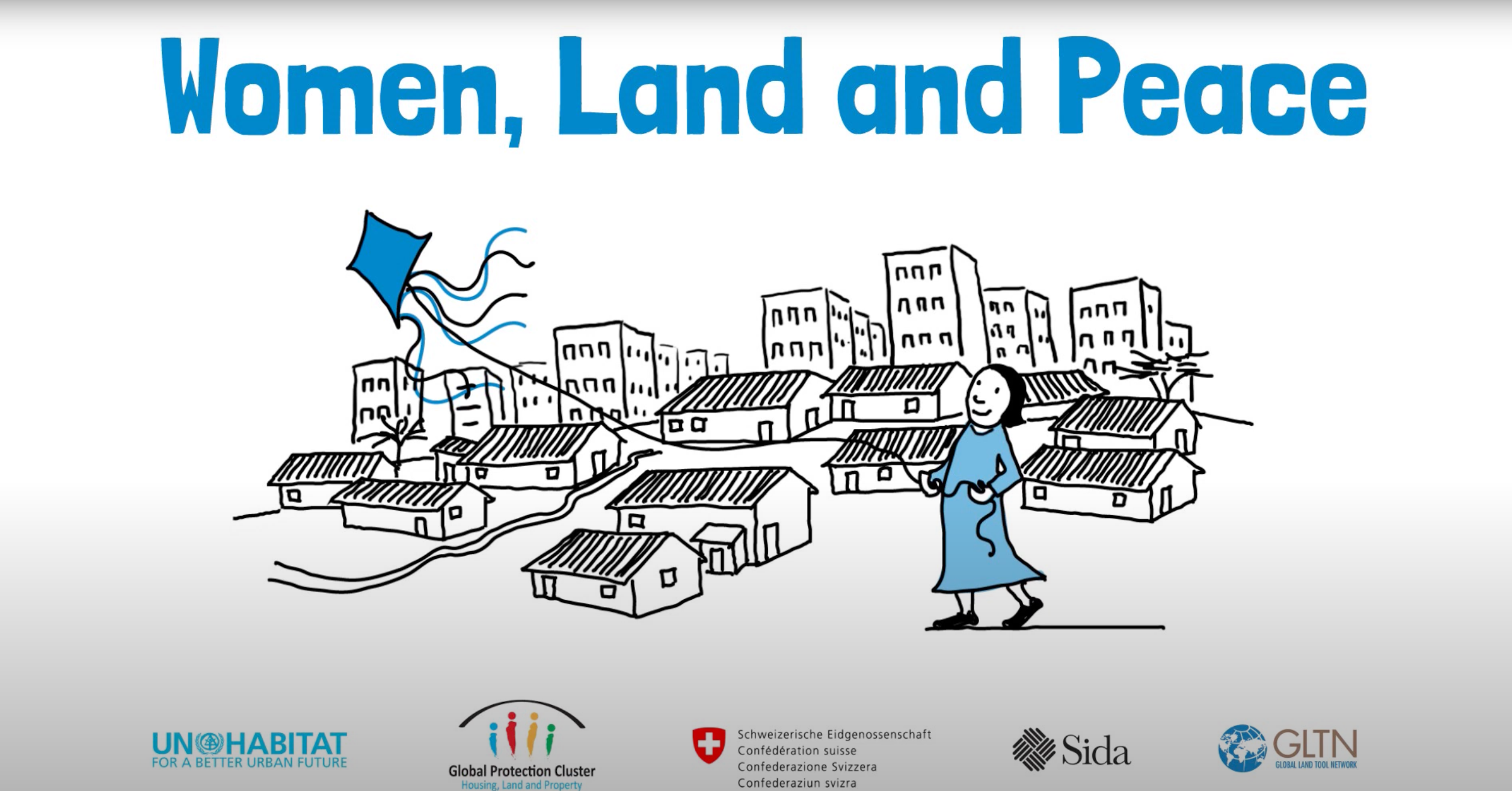Gender and HLP
Women face specific challenges relating to their housing, land and property rights, often increasing as they are affected by displacement.
NRC has been working on women’s HLP rights since 2011. As they summarise on their dedicated displaced women’s HLP pages, access to housing, land and property is one of the principal factors determining the economic and social well-being of women, especially in situations of conflict and reconstruction when their rights are violated on a mass scale. Demographic changes that occur during conflict result in higher numbers of single women and women-headed households.
In general, women-headed households have a higher dependency burden than male-headed households. Poverty in these families is made worse when gender-biased inheritance laws deprive women of access to the property of a deceased or missing spouse.
Even before conflict, women are disadvantaged when it comes to HLP entitlements. Land ownership remains largely restricted to men, both by tradition and law. Globally, men’s landholdings are almost three times the size of those of women. Inheritance is fundamental for the accumulation of assets, including land, yet often women and girls have fewer inheritance rights than men and boys. Conflict makes these inequalities worse. Women experience the loss of HLP rights at every stage of displacement. When women are forced to leave their homes, finding a place to stay is critical to survive displacement and provide safety for their families.
Women also have different experiences of HLP rights in return situations. Women are less likely than men to possess documentary evidence of their land tenure and more likely to experience violence in relation to their dispute.
Displaced and returnee women who are widowed, separated, disabled and illiterate may be particularly vulnerable and are often without support systems or networks. Housing, land and property can be the only economic assets these women have. Their survival and that of their families can depend on them. Many displaced women are left with few real options but to challenge their families and communities to have independent access to these assets.
These gender-specific differences require special measures to enhance gender equality in HLP through ensuring better access for women. Critical in this is working with grassroots women’s organisations to help change social and cultural perceptions and attitudes regarding women’s HLP rights.
Access to HLP is key to improving the life of displaced women, which will benefit their families, communities, and nations. In this way, supporting women’s HLP rights represents an opportunity to strengthen the links between humanitarian responses and to set the framework for sustainable recovery and development. (NRC, 2021)
These resources can help you design adequate responses – based on emerging global best practices. These resources will be updated periodically – please contact the HLP AOR Coordinator if you have any questions or new resources to contribute.
To read more about NRC’s work and resources on displaced women’s HLP, please see here.
To find out about GLTN and UN-Habitat resources on gender and land, please see here.
- Consolidating Gains - Displaced Women’s Housing Land and Property Rights in Africa (2021)
- Woman and Land in the Muslim World (2018)
- Life can change: Securing housing, land and property rights (2014)
- Gendering Land Tools: Achieving Secure Tenure for Women and Men (2008)
- Policy Makers Guide to Women’s Land, Property and Housing Rights Across the World (2007)
- Progress Report on Removing Discrimination Against Women in Respect of Property & Inheritance Rights (2006)
- Shared Tenure Options for Women – A Global Overview (2005)
- Gender and Property Rights within Post-Conflict Situations (2005)
- Gender, Disaster and Conflict: A Human Settlements Perspective (2004)
- Women’s Rights to Land and Property (2004)
- Gender and Access to Land (2002)
- Women’s HLP Rights in Post-Conflict Situations and During Reconstruction – A Global Overview (1999)


